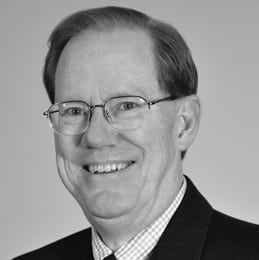How Important Is the Obamacare Litigation?
What’s at stake in the Obamacare litigation? Much more, we are being told, than the viability of the Patient Protection and Affordable Care Act itself. What hangs in the balance, conservatives proclaim, is nothing less than the future of constitutionally limited government in America.
Back in January, Judge Roger Vinson held that Congress exceeded its constitutional authority by forcing almost everyone in America to buy health insurance (the so-called individual mandate). Now the U.S. Court of Appeals in Atlanta has upheld that aspect of Judge Vinson’s decision, while rejecting his conclusion that the entire statute is invalid.
According to a Wall Street Journal editorial, Vinson’s decision was a “constitutional moment” that may signal “a return to the government of limited and enumerated powers that the framers envisioned.” And columnist George Will says this case could rescue “Madison’s constitutional architecture for limited government.”
Really? Let’s suppose that when the case finally reaches the Supreme Court, the mandate is struck down, and the statute along with it. What larger meaning would such an outcome have, beyond the obvious importance of deciding Obamacare’s fate? Unfortunately, very little impact can be expected from the kind of desperate, last-gasp strategy that spawned the main issue in this litigation.
The Supreme Court will almost certainly be deciding whether the Commerce Clause — which allows Congress to “regulate commerce . . . among the several states” — authorized enactment of the individual mandate. Obamacare’s defenders can point to a line of Supreme Court decisions stretching back more than a century, construing that clause to grant Congress a blank check on power, authorizing control of literally every aspect of the economy, from agricultural equipment to zirconium jewelry.
This orthodoxy has been instrumental in allowing health insurance to become one of America’s most government-dominated industries, replete with tax-funded schemes to insure the elderly and poor (Medicare and Medicaid), “coverage mandates” requiring exotic benefits like acupuncture and in vitro fertilization, price controls on insurance premiums, tax laws that channel health insurance through one’s employer, and hundreds of similar controls.
What about the “government of limited and enumerated powers that the framers envisioned”? Regrettably, it’s nowhere in sight. Our Founding Fathers held that government has but one purpose: to protect individual rights to life, liberty, property, and the pursuit of happiness. In that context, they designed the Commerce Clause as a powerful check on states’ ability to interfere with free trade, using the term “regulate” to mean: make uniform or regular. If, say, New York were tempted to erect a tariff barrier on imports from New Jersey, the federal government’s exclusive power over interstate commerce would soon squelch the scheme.
The Commerce Clause was never intended to grant Congress carte blanche to rule the economy. Under the Founders’ Constitution, a person’s decision whether to buy health insurance would be treated as an entirely private matter in which government has no say (except to redress breach of contract or fraud). Indeed, the entire Rube Goldberg apparatus of laws, regulations, and entitlements by which Uncle Sam and his state-level minions control American health care would be thrown out as unconstitutional violations of property rights and liberty of contract.





